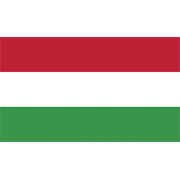Fiscal subject related
The transaction can be considered a service if the sale of the prepared food and drink is accompanied by appropriate additional services that allow immediate consumption on the spot; for example, dining facilities are provided with tables, chairs, and benches, and these service elements dominate the transaction. The sale of food and drink is therefore only one part of the transaction, in which services predominate.
In the transaction, the provision of services dominates if there is an opportunity for local consumption, and the guest lives with this; that is, he accepts the additional services that enable immediate consumption. However, if it is not possible to eat on-site or the guest asks for the food or drink to be taken away, then product sales dominate the transaction instead of service. That also means that the predominance of service provision can be realized not only in restaurant catering, in conditions typical of restaurant catering, but also, for example, in fast food restaurants, in the so-called "food courts" of shopping centers, where there is usually no service and guests have to take plastic trays and cutlery.
When determining the typical and dominant elements of the transaction, all the circumstances of the hospitality business must be taken into account, because only by evaluating them can it be decided whether the transaction is more of a product sale or more of a service provision. It is not the level of service provision that is decisive, but the service elements related to the given activity. Thus, the application of a reduced VAT rate for local consumption cannot be ruled out, even for services of a less advanced standard compared to restaurant catering. This is also supported by the Court's 2022 ruling, according to which the dominance of service provision cannot be established only in circumstances typical of restaurant catering.
Overall, it can be said that the existence of additional services must always be judged in relation to the nature of the given service. The specific activity must be examined and judged from the point of view of the average consumer.
Other news from Hungary
Hungary Introduces Digital VAT Refund Terminals for Foreign Customers – Non-EU Travellers.
 Hungary
Author: Tara Nedeljković
Hungary
Author: Tara Nedeljković
Hungary’s National Tax and Customs Administration (NAV) has launched a new digital VAT refund system at Budapest Liszt Ferenc International Airport, introducing electronic terminals that allow non-EU travelers to process VAT refunds quickly and select their preferred refund method. Read more
Subscribe to get access to the latest news, documents, webinars and educations.
Already subscriber? Login


Hungary Introduced Lower 5% VAT Rate for Specific products
 Hungary
Author: Tara Nedeljković
Hungary
Author: Tara Nedeljković
Hungary has expanded the scope of the reduced 5% VAT rate under Act CXXVII of 2007 to include certain fresh, chilled, or frozen meat and slaughter by-products of domestic cattle, as listed under Annex 3, Part I, Line 60, provided they meet both the specific CN tariff headings (0201, 0202, 0206) and the legal product definition. Read more
Subscribe to get access to the latest news, documents, webinars and educations.
Already subscriber? Login


September 2026: How Hungary’s New Transaction Reporting Rules Affect Businesses?
 Hungary
Author: Tara Nedeljković
Hungary
Author: Tara Nedeljković
From 1 September 2026, Hungary will introduce mandatory receipt data reporting, requiring all receipt information to reach the tax authority, with real-time compliance automatically fulfilled by businesses using NAV-connected online or e-cash registers, while non-connected issuers must submit aggregated daily reports within three days. Read more
Subscribe to get access to the latest news, documents, webinars and educations.
Already subscriber? Login


The KOBAK Portal Under New Hungarian E-Cash Register Rules
 Hungary
Author: Tara Nedeljković
Hungary
Author: Tara Nedeljković
The KOBAK Portal, operated by Hungary’s NAV, is the mandatory central platform for registering, activating, and managing the full lifecycle of both online and e-cash registers under the new digital fiscal rules. Read more
Subscribe to get access to the latest news, documents, webinars and educations.
Already subscriber? Login


Hungary’s Next Phase of Fiscalization: What Retailers Need to Know About the Shift to E-Cash Registers
 Hungary
Author: Dunja Bošković Obradović
Hungary
Author: Dunja Bošković Obradović
Hungary is not announcing a fiscal revolution with headlines or sweeping political rhetoric. Instead, it is executing one methodically, through regulation, architecture, and time. For retailers and POS vendors operating in the country, the shift now underway will redefine what fiscal compliance means—not as a box to be checked, but as a system embedded directly into everyday transactions. At first... Read more



New webinar was uploaded: Recorded webinar: Approaching Hungary’s New E-Cash Register Era
 Hungary
Author: Tara Nedeljković and Ištvan Božoki
Hungary
Author: Tara Nedeljković and Ištvan Božoki
On December 19 2025, Fiscal Solutions organized a free webinar on the topic „Approaching Hungary’s New E-Cash Register Era“ The webinar was held by Tara Nedeljković, Team Lead of Legal Consultants at Fiscal Solutions, and Ištvan Božoki, Technical Consultant at Fiscal Solutions. Read more
Subscribe to get access to the latest news, documents, webinars and educations.
Already subscriber? Login


New event was created: Reminder - Join our free webinar: Approaching Hungary’s New E-Cash Register Era
 Hungary
Author: Tara Nedeljković and Ištvan Božoki
Hungary
Author: Tara Nedeljković and Ištvan Božoki
Step into this in-depth webinar designed for businesses and retailers operating in, or planning to enter the Hungarian market. You’ll discover what the new generation of e-cash registers is expected to introduce, along with the practical implications these changes may have on daily operations, technology planning, and customer interaction as well. 📅 18 December ⏰ 3 PM (CET) What we&rsquo... Read more


